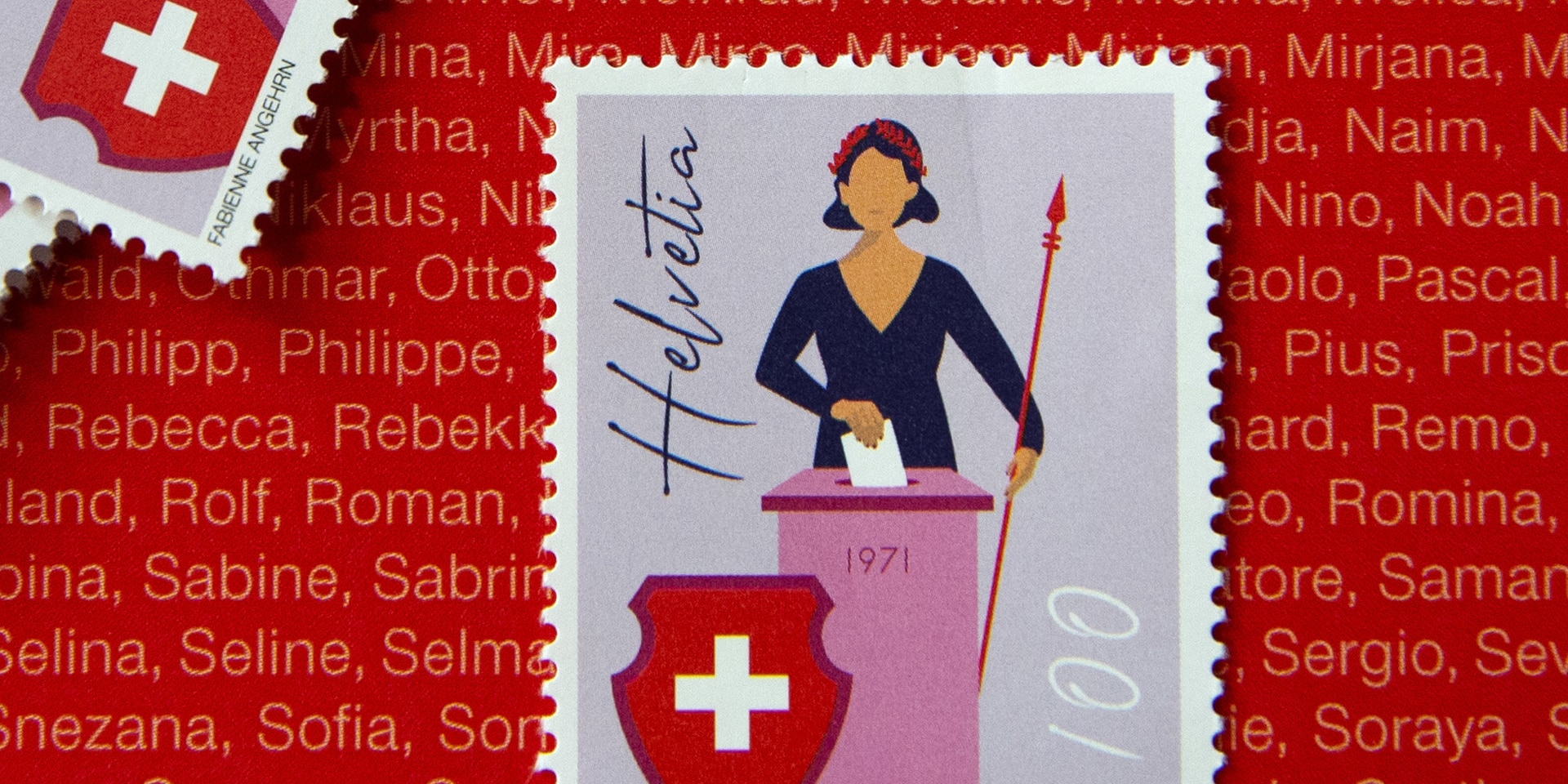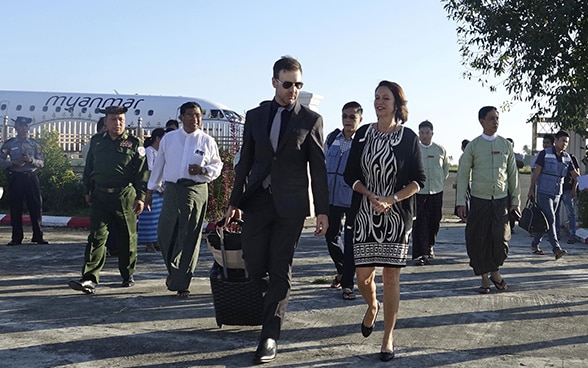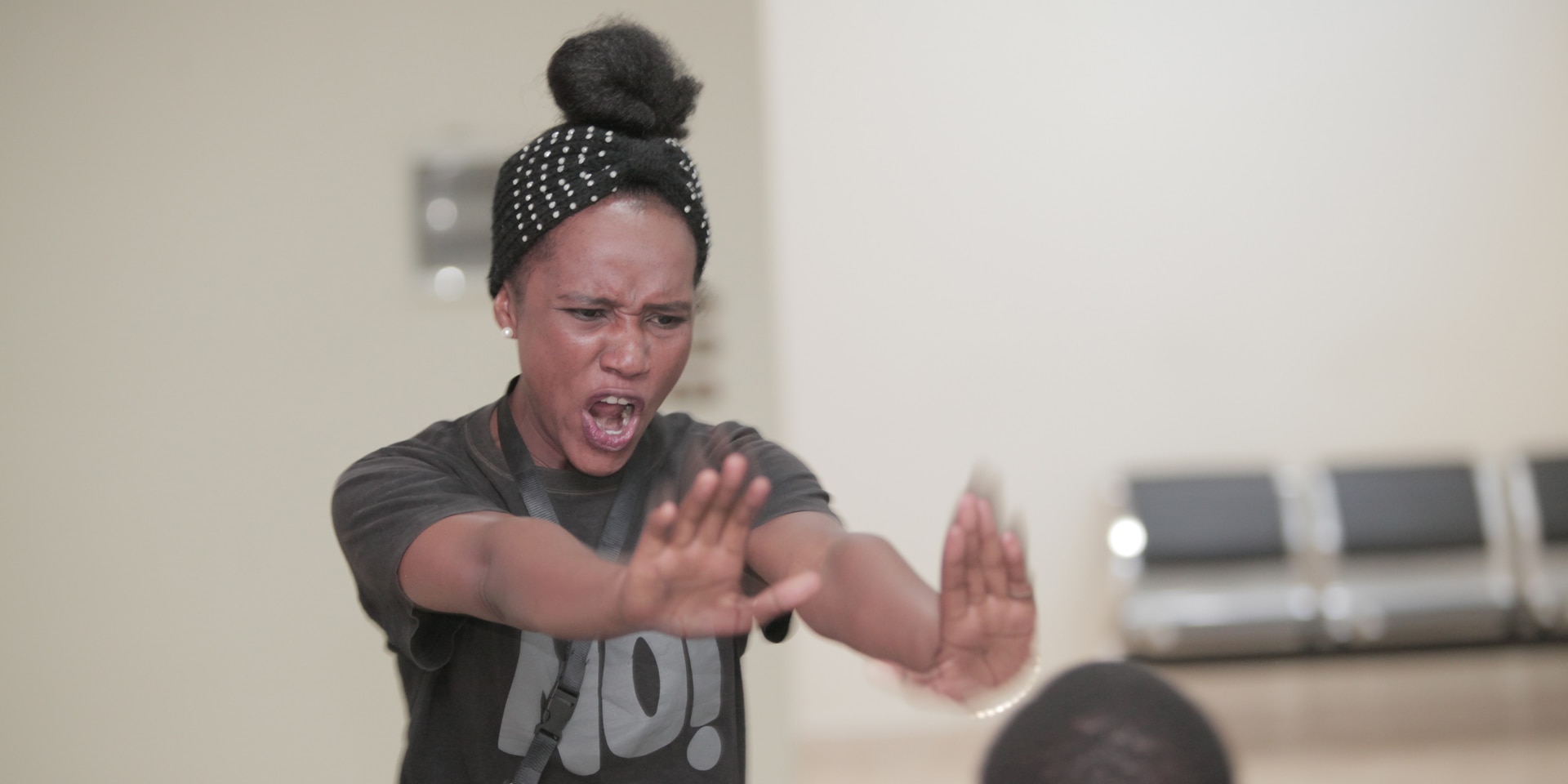Where are women now?
Fifty years on from first entering politics, women are increasingly well represented in the Federal Department of Foreign Affairs (FDFA). Livia Leu, FDFA State Secretary, and Tania Cavassini, FDFA Director of Resources, provide an update.

Swiss women were first able to enter politics after a popular vote in 1971. © Keystone
On the 50th anniversary of the introduction of the right to vote for women in Switzerland, Livia Leu and Tania Cavassini welcome the progress made on the status of women in the FDFA. Progress that should not stop here.

"Women have paved the way for us"
On 7 February 1971, Swiss women entered politics for the first time, obtaining the right to vote and stand for election. "The move towards more equal opportunities in the Federal Administration is encouraging. The 50th anniversary of women's suffrage this year has reminded us how recent the actual involvement of women in our country's politics is," explains Leu.
Gender balance at all levels of the hierarchy is also a recent phenomenon in the FDFA. “We too had courageous pioneering women such as Francesca Pometta, who was the first female diplomat to join the FDFA in 1956, followed by Marianne von Grünigen. They and others like them paved the way for us."
Tania Cavassini, FDFA Director of Resources since 2019, is also pleased with how far things have progressed: "Thirty years ago, when I started in the Federal Administration, there were no women in managerial posts. I am delighted to see now a growing women's presence in all areas of Swiss foreign policy."
Efforts paying off at the FDFA
Women are now increasingly represented at the higher hierarchical levels of the FDFA. Currently, three out of four directorates and the State Secretariat are headed by women. Across the various federal departments, four women are state secretaries (five from 1 January 2022).
"In terms of gender balance, the greatest need for action currently is at the top managerial level immediately under the FDFA's senior management. I'm pleased to say we're approaching equal representation of men and women at the State Secretariat, with six female and eight male heads of division. In 2009, the proportion of women among the department's top management was only around 12%. At the end of 2020, it was around 26%," says Leu.
To me it's important that we effectively advocate for Switzerland's interests externally, and internally maintain a respectful, non-discriminatory, inclusive departmental culture."
Facts and figures
The proportion of women at the FDFA has risen in the past 10 years from 47% to 52%.
- Middle management: 43%
- Top management: 26%
- Senior management: 34%
- Heads of mission: 20%
- Ambassadors: 24%
Action plan 2021–28
The FDFA will adopt a new action plan for equal opportunities for the period 2021–28. The new plan will take stock of the first action plan for 2010–20 and set out the direction of travel for the coming years.
The FDFA must now continue to build on this success. There is still work to be done, says Leu: "We will pursue our efforts at all levels, from recruitment to staff development to the selection of the best managers."
Cavassini also stresses the importance of continuing in the right direction and ensuring parity at all levels: "For example, we want to increase the number of female heads of mission in our external network."
A wealth of diversity
In more general terms, she highlights the importance and richness of fostering diversity within the FDFA. Diversity helps the department to function optimally and to achieve Switzerland's foreign policy objectives.
"In addition to gender equality, it is important to talk about diversity of profiles. Diversity within teams is key to creativity and performance, and encompasses a wide range of educational backgrounds, and a wealth of different cultures and languages," she says.
An official celebration to mark the anniversary, organised by the FDJP, will be held at the Federal Palace on 2 September 2021. Originally scheduled for 4 February earlier this year, the event was postponed owing to the COVID-19 pandemic.



